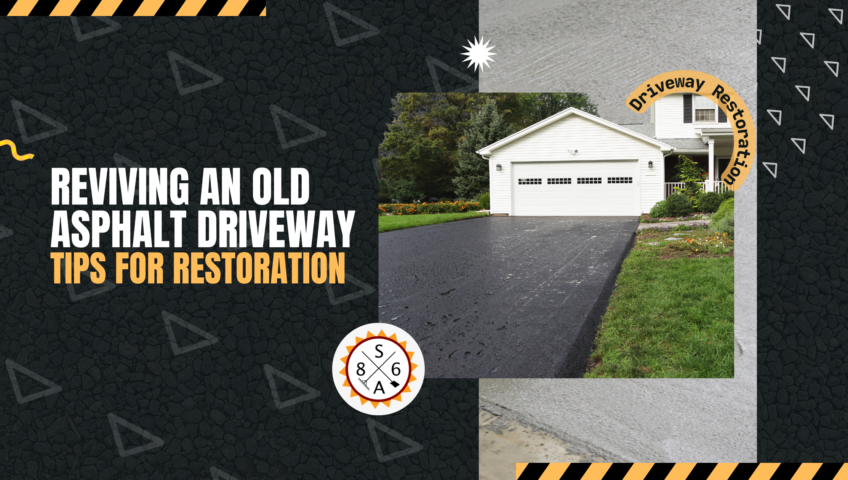
Asphalt or Concrete: How Colorado’s Transportation Departments Decide
In Colorado, the decision between using asphalt or concrete for road paving is influenced by a range of factors from environmental conditions to budget constraints and traffic patterns. Given the state’s unique climate and geographical diversity, local transportation departments must carefully evaluate each factor to make the most suitable choice for their road projects.
Key Factors Influencing Material Choice in Colorado
1. Climate Variability
Colorado’s climate is marked by extreme variability, ranging from arid conditions in the plains to subalpine climates in the mountains. This variability significantly influences material selection. Asphalt, which can soften in high heat, is less suitable for areas like the Eastern Plains, which experience intense summer temperatures. Conversely, the freeze-thaw cycles common in the Rocky Mountains can cause concrete to crack and degrade, potentially making asphalt a better choice in these colder regions due to its flexibility.
2. Altitude and Weather Conditions
The high altitudes prevalent in many parts of Colorado can pose unique challenges for road materials. Concrete can provide durability and longevity, which is crucial in high-altitude areas where maintenance access can be limited by snow and difficult terrain. However, the installation and curing time for concrete can be a drawback, particularly in regions with short construction seasons due to long winters.
3. Cost Considerations
Budget is always a crucial factor in public infrastructure projects. Asphalt typically offers a lower initial cost compared to concrete, making it an attractive option for quickly needed repairs or when budgets are tight. However, Colorado’s transportation departments also consider the longer lifespan and reduced maintenance needs of concrete, which may offer greater cost efficiency over decades.
4. Traffic Volume and Loads
Roads in urban areas such as Denver and Colorado Springs endure heavy traffic and significant loads, increasing the wear and tear on pavement. Concrete’s ability to withstand heavy and continuous use makes it an ideal choice for these environments. In contrast, rural or less trafficked roads might favor asphalt due to the lower initial investment and quicker installation time.
5. Environmental Impact
Colorado places a strong emphasis on environmental sustainability. The choice between asphalt and concrete must also consider the ecological footprint. Asphalt is highly recyclable, often reused in the paving of other roads, which aligns with Colorado’s goals for sustainable practices. However, the reflective properties of concrete can reduce the need for artificial lighting and help mitigate urban heat islands, a significant benefit in city settings.
In Colorado, the decision between using asphalt or concrete for road paving is influenced by a range of factors from environmental conditions to budget constraints and traffic patterns. Given the state’s unique climate and geographical diversity, local transportation departments must carefully evaluate each factor to make the most suitable choice for their road projects.
Key Factors Influencing Material Choice in Colorado
1. Climate Variability
Colorado’s climate is marked by extreme variability, ranging from arid conditions in the plains to subalpine climates in the mountains. This variability significantly influences material selection. Asphalt, which can soften in high heat, is less suitable for areas like the Eastern Plains, which experience intense summer temperatures. Conversely, the freeze-thaw cycles common in the Rocky Mountains can cause concrete to crack and degrade, potentially making asphalt a better choice in these colder regions due to its flexibility.
2. Altitude and Weather Conditions
The high altitudes prevalent in many parts of Colorado can pose unique challenges for road materials. Concrete can provide durability and longevity, which is crucial in high-altitude areas where maintenance access can be limited by snow and difficult terrain. However, the installation and curing time for concrete can be a drawback, particularly in regions with short construction seasons due to long winters.
3. Cost Considerations
Budget is always a crucial factor in public infrastructure projects. Asphalt typically offers a lower initial cost compared to concrete, making it an attractive option for quickly needed repairs or when budgets are tight. However, Colorado’s transportation departments also consider the longer lifespan and reduced maintenance needs of concrete, which may offer greater cost efficiency over decades.
4. Traffic Volume and Loads
Roads in urban areas such as Denver and Colorado Springs endure heavy traffic and significant loads, increasing the wear and tear on pavement. Concrete’s ability to withstand heavy and continuous use makes it an ideal choice for these environments. In contrast, rural or less trafficked roads might favor asphalt due to the lower initial investment and quicker installation time.
5. Environmental Impact
Colorado places a strong emphasis on environmental sustainability. The choice between asphalt and concrete must also consider the ecological footprint. Asphalt is highly recyclable, often reused in the paving of other roads, which aligns with Colorado’s goals for sustainable practices. However, the reflective properties of concrete can reduce the need for artificial lighting and help mitigate urban heat islands, a significant benefit in city settings.




